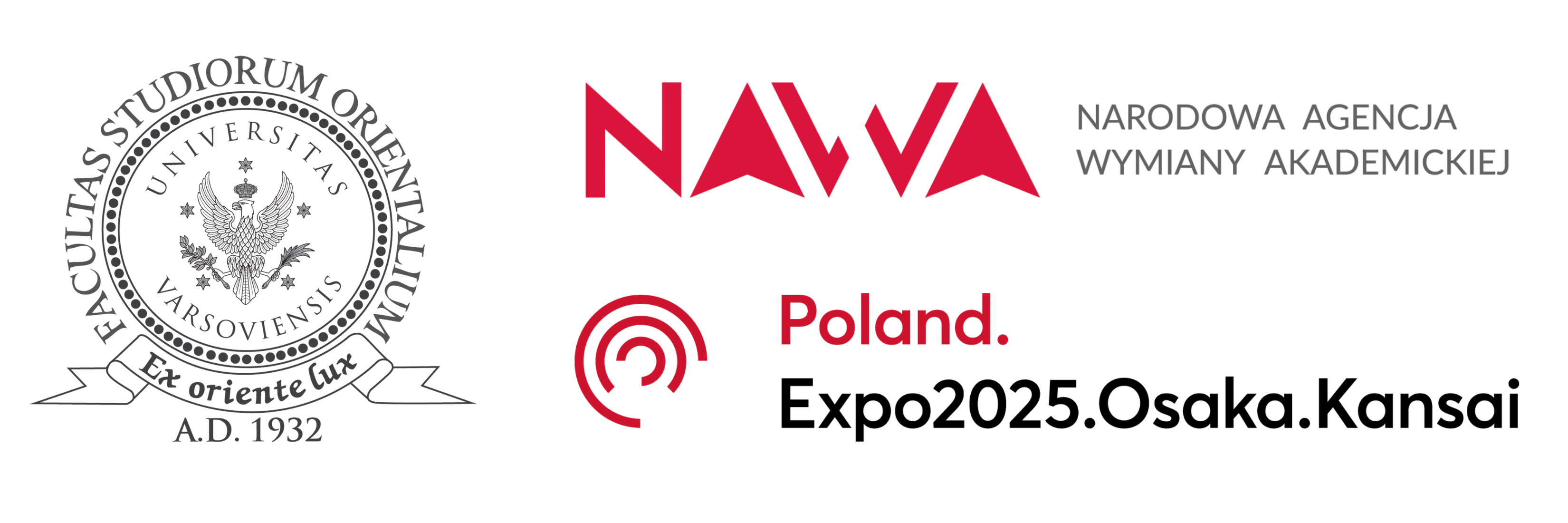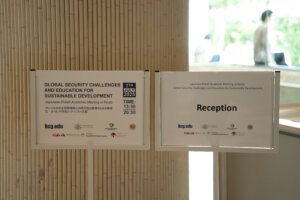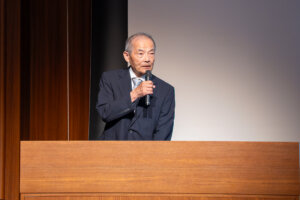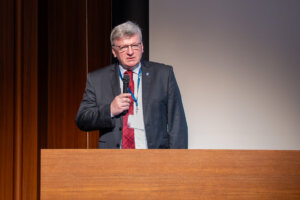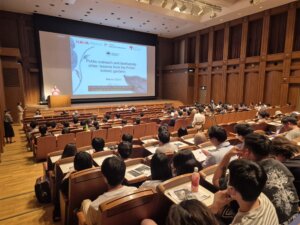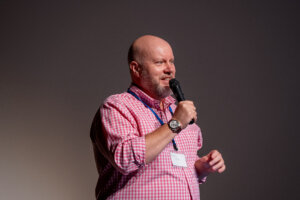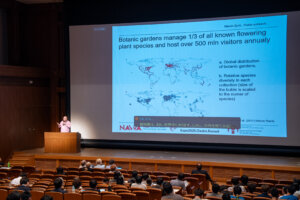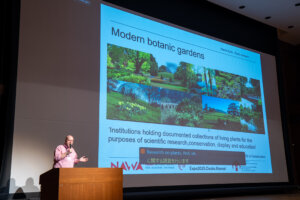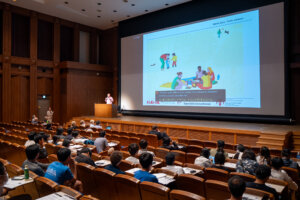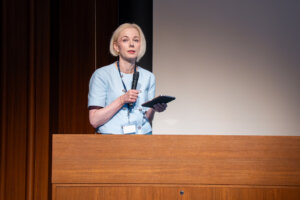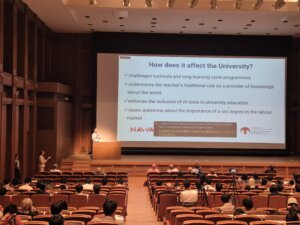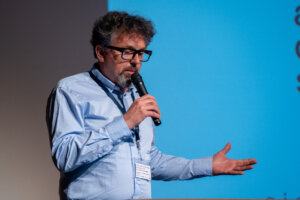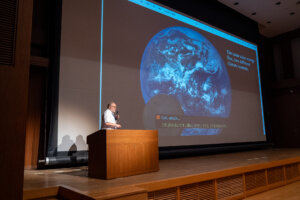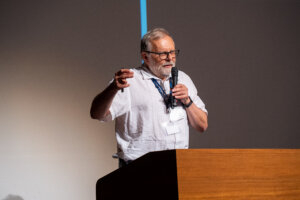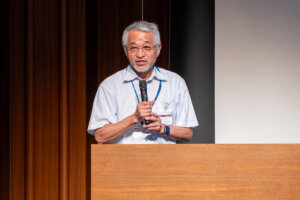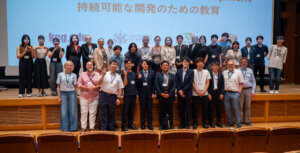7/07/2025 Edukacja na rzecz Zrównoważonego Rozwoju
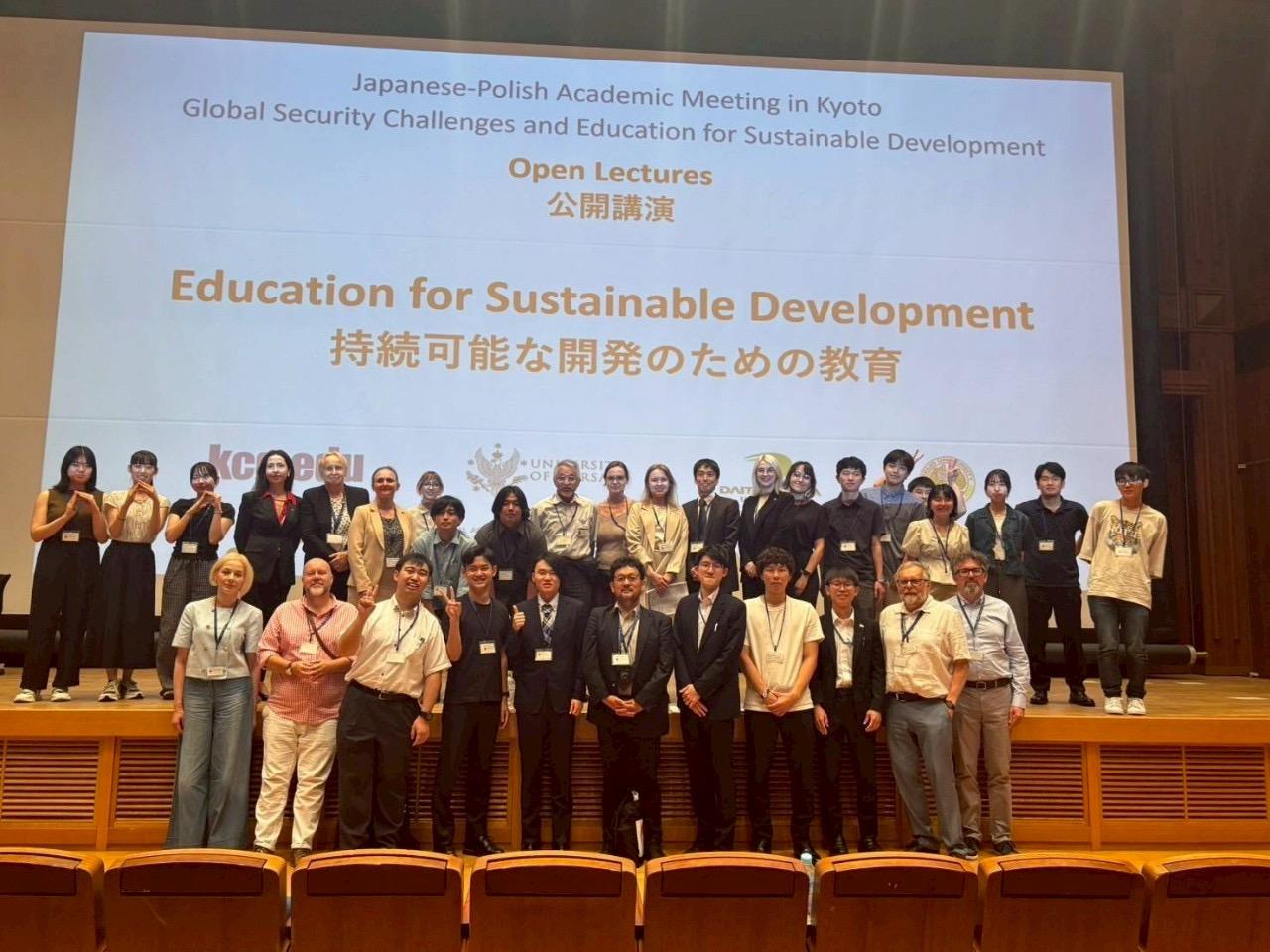
Kategoria: Wykłady otwarte
Jednym z kluczowych wydarzeń organizowanych przez Uniwersytet Warszawski w ramach projektu “Kierunek EXPO 2025” były wykłady otwarte poświęcone tematyce zrównoważonego rozwoju. Odbyły się one w auli Kyoto College of Graduate Studies for Informatics w dniu 7 lipca 2025 roku. Z przemówieniami powitalnymi wystąpili prof. Eiho Shigeru (prorektor Kyoto College of Graduate Studies for Informatics) oraz prof. dr hab. Zygmunt Lalak (prorektor UW ds. badań). Prelekcje wygłoszone zostały przez czterech reprezentantów Uniwersytetu Warszawskiego, tj. prof. dr hab. Marcina Zycha (Wydział Biologii, Ogród Botaniczny), prof. dr hab. Szymona Malinowskiego (Wydział Fizyki, Instytut Geofizyki), dr Justynę Godlewską-Szyrkową (Wydział Nauk Politycznych i Studiów Międzynarodowych) oraz dr Sebastiana Szymańskiego (Wydział “Artes Liberales”, Centrum Badania Ryzyka Systemowego). Na zakończenie głos zabrał przedstawiciel Gospodarzy, prof. Imai Masaharu.
Szczegółowy program: Japanese-Polish Academic Meeting in Kyoto: Global Security Challenges and Education for Sustainable Development
Abstrakty wykładów:
Prof. Marcin ZYCH (UW Faculty of Biology, Director of the UW Botanic Garden), Public outreach and biodiversity crisis: lessons from the Polish botanic gardens
マルチン・ゼィフ教授 (ワルシャワ大学大学生物学部, ワルシャワ大学植物園園長), パブリック・アウトリーチと生物多様性の危機:ポーランドの植物園からの教訓
Botanic gardens are institutions with a very long history. Currently, in response to the challenges and threats of the modern world and the needs of their visitors, botanic gardens are becoming multifunctional units, combining scientific, conservation, educational, exhibition and recreational functions. Worldwide, botanic gardens host over 0.5 billion visitors per year and their collections contain about 1/3 of the global flora, maintained and studied by the group of specialists that includes scientists, educators and practitioners-gardeners dealing with plants. In the face of the growing threat to biodiversity, these resources and competences make botanic gardens key players in effective nature conservation which, among all, includes public outreach to convince the society of the great importance of plants through appropriate educational activities. This is perfectly illustrated by the example of Polish gardens which, thanks to their extensive activities, find the right compromise between the burning need to catalogue and protect the biodiversity of plants, and meeting the social demand for information and services.
Dr. Justyna GODLEWSKA-SZYRKOWA (UW Faculty of Political Science and International Studies, Vice-Dean of the UW Faculty of Medicine), Academic Education in the AI Era: skills that matter
ユスティナ・ゴドレフスカ=シルコヴァ准教授(ワルシャワ大学政治学・国際研究学部, ワルシャワ大学医学部副学部長), AI時代の学術教育: 重要なスキルの獲得
The accelerating impact of artificial intelligence and the digital transformation is challenging traditional university education and its role in society. The social changes that are taking place are forcing a reevaluation of the aims and tools of education, questioning in many respects the previous curricula, the profiles of graduates, and the relevance of a university degree in the labour market. Universities need to redefine their role, and social responsibility, in an age of digital revolution. One approach that can be applied is to look through the lens of the key competences that are necessary in a digital society. Seen from this perspective, the overarching role of the university in the field of education is, first and foremost, to foster the formation of advanced cognitive competences in individual fields of study, and to aid the development of social skills (cooperation, communication, conflict resolution) and self-regulation skills (emotional intelligence, resilience, self-management). The aim of education would therefore also be to ensure lifelong learning and to engender an attitude geared towards the flexible acquisition of new competences and the abandonment of unsuccessful patterns.
Dr. Sebastian SZYMAŃSKI (UW Faculty of „Artes Liberales”, Director of the Centre for Systemic Risk Analysis), Human Agency and the Development of AI: threat or challenge
セバスチャン・シマンスキ准教授 (ワルシャワ大学システミックリスク研究センター長), 人間の主体性とAIの発展:脅威か課題か
The rapid advancement of artificial intelligence (AI) technologies has sparked profound discussions about their implications for human agency. While AI systems are increasingly capable of performing tasks traditionally reserved for humans – ranging from decision-making to creative endeavors – the question arises: does this development threaten human autonomy, or does it present an opportunity to redefine and enhance our role in the digital age? This presentation explores the dual nature of AI’s impact on human agency, focusing on its potential to either diminish or augment human control over key aspects of life. On the one hand, AI systems can erode agency by automating decisions, reinforcing biases, and concentrating power in the hands of a few stakeholders. On the other hand, these technologies offer unprecedented opportunities to amplify human creativity, empower underrepresented voices, and solve complex global challenges. Drawing on interdisciplinary perspectives from philosophy, ethics, and technology studies, the talk examines how humans can retain control over AI’s trajectory while ensuring it aligns with societal values. By emphasizing the role of transparent governance, inclusive design, and ethical oversight, it highlights strategies to mitigate risks and maximize benefits. Ultimately, the development of AI is not a predetermined threat but a challenge that demands thoughtful, collective action to preserve human agency in the face of rapid technological evolution.
Prof. Szymon MALINOWSKI (UW, Director of the Institute of Geophysics), Sky isn’t that far, Earth is smaller than you think”. Teaching the climate crisis – the perspective of an academic teacher and science populariser
シモン・マリノフスキ教授 (ワルシャワ大学物理学部; ポーランド科学アカデミー気候危機諮問委員会委員長), 空はそんなに遠くない、地球はあなたが思っているより小さい」:気候危機を教える ~ 教師と科学普及者の視点
Atmosphere, if compressed to the density of water would be 10 m deep. This means that we are not far from the outer space and only some properties of the atmosphere allowed life to develop and us to exist. Recently mass of all human products existing on earth is greater that mass of all biosphere. We govern the surface of our planet, we govern climate, water cycle, cycling of nutrients, we govern life on our planet. Are we aware of it?
Projekt finansowany przez Narodową Agencję Wymiany Akademickiej w ramach Programu Międzynarodowe Wydarzenie Naukowe na Wystawie Światowej Expo 2025 w Osace, Kansai (nabór 2024/Kierunek EXPO 2025 – umowa nr BPI/OSA/2024/1/00020/DEC/01).
